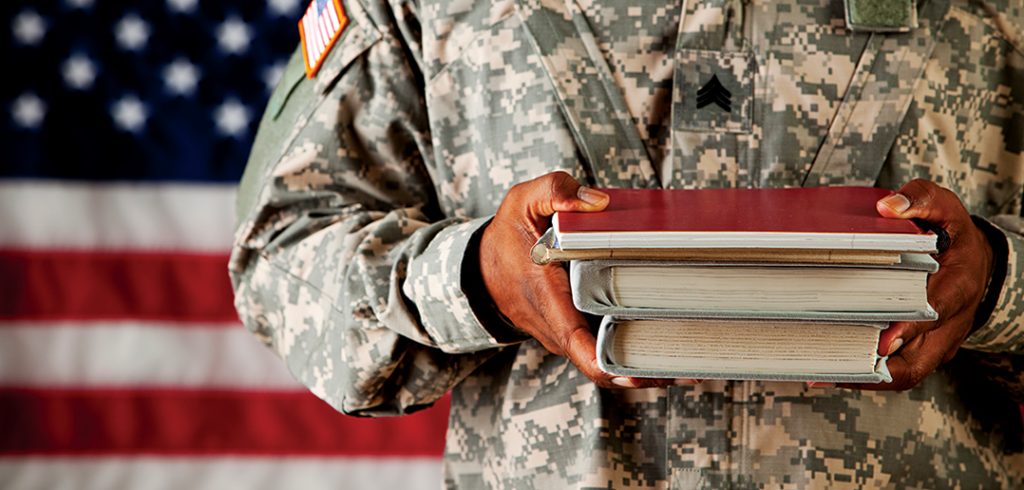When he was leaving the Marine Corps, Jason Karch, PCS ’14, began researching colleges. He was stationed in Hawaii and knew he wanted to go to school in New York. The admissions staff at Fordham spent a lot of time answering his questions and helping him navigate the tough transition from military to college life.
“[They] told me about the yearly growth of veterans coming to Fordham, and that spoke to me. I thought, Fordham gets it. They’re making efforts to create an environment that vets want to come to.”
After graduating from Fordham with a degree in political science, Karch helped to found Operation Education, a nonprofit that aims to raise college graduation rates among veterans and, ultimately, help them go on to rewarding careers. The venture was inspired by the treatment he received at Fordham, where veteran enrollment has grown by 47 percent in the past three years, and graduation rates for veterans are significantly higher than the national average.
“I chose Fordham because of the help I received even before I started,” said Karch, a compliance analyst for a hedge fund who attends Brooklyn Law School at night. “A buddy of mine and I were talking about how a lot of schools don’t have the same focus on veterans as Fordham does, so we decided to use Fordham as a blueprint in creating environments that are conducive to veterans’ success.”
Based in California, Operation Education works directly with student-veteran organizations in colleges, universities, and trade schools to help them create successful programs for veterans. They work to make sure the programs have enough faculty and staff, and that there are people who can help students know what to expect from the transition and not be overwhelmed. Veterans can also reach out directly to Karch and his colleagues, who understand what they’re going through.“Vets can get a little too aggressive with trying to do too many things too soon,” Karch said. “When you’re in the military, you always have a plan. When you get out, you’re left to fend for yourself.”
Many veterans enroll in school only to be thwarted by obstacles and troubles adjusting, Karch said. Of the veterans who used Montgomery (for active duty and reservists) and Post-9/11 GI Bill benefits between 2002 and 2010, just 52 percent of them actually received a postsecondary degree or certificate by 2013, according to Student Veterans of America. By comparison, the six-year graduation rate for veterans completing a bachelor’s degree at Fordham is 63 percent.
Trying to maintain grades, manage time, and have a social life can be difficult, especially when veterans are in school with students who are younger and have had a completely different set of experiences, said Karch.
“It’s a big, big process to shift your mindset. But once they realize how to focus on school, they can take some of those experiences and parlay them into what they want to do after school.”
Karch served as a lance corporal in the Marines, stationed in Hawaii with tours in Iraq and Japan. In addition to his personal experiences, he gained some familiarity with the issues facing returning vets at Fordham as a member of the Fordham Veterans Group. “I’d give [prospective students]my number and tell them to call me with questions.” He also did some tutoring in history and study skills. “I was in a pretty fortunate situation; I had a decent head on my shoulders,” he said, adding that he doesn’t know where he’d be today without his Fordham experience.
“It’s harder for some than others. The last thing you want is to see somebody not succeed because they don’t know what questions to ask.”

